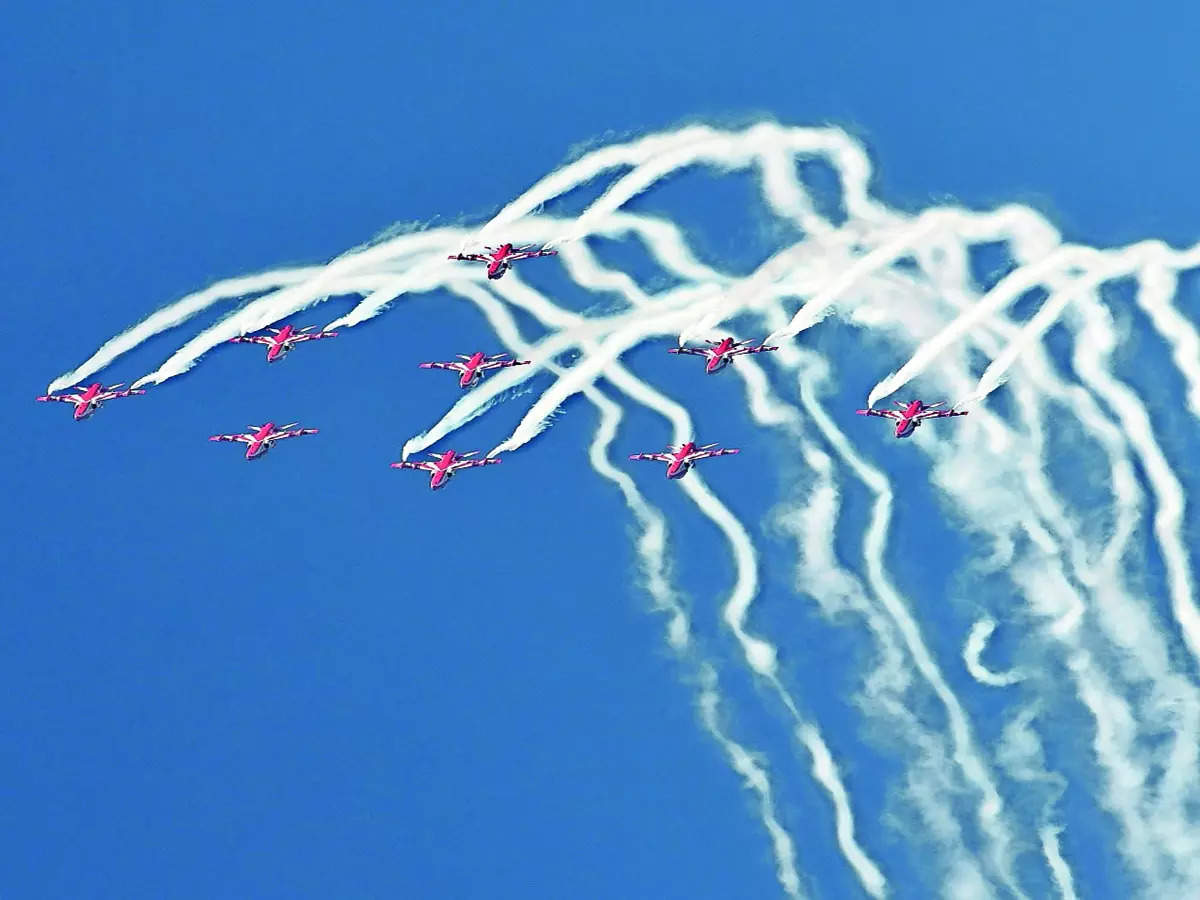 |
|
The upcoming Aero India 2025 airshow in Bengaluru, scheduled to take place at the Yelahanka Air Force Station from February 1st to 14th, has prompted the implementation of significant restrictions across north Bengaluru. These measures, aimed at ensuring the smooth and safe conduct of the airshow, impact various aspects of daily life for residents and businesses in the vicinity. The Bruhat Bengaluru Mahanagara Palike (BBMP), the city's civic body, has taken the lead in coordinating these restrictions, issuing directives to developers, businesses, and the general public. The scale of these restrictions underscores the magnitude of the event and the necessary security and logistical considerations involved in hosting such a large-scale airshow.
One of the most significant restrictions relates to construction activities within a 10-kilometer radius of the Yelahanka Air Force Station. Developers and builders operating in this zone have been instructed to lower the height of cranes used in construction projects. More drastically, all crane operations within this radius have been completely suspended for the duration of the airshow, from February 1st to 14th. This measure is crucial for ensuring clear airspace and preventing any potential hazards to aircraft during the airshow. The BBMP has made it clear that any violation of these rules will result in strict legal action under the BBMP Act, 2020, and Rule 91 of the Indian Aircraft Rules, 1937. These legal frameworks provide the necessary backing for enforcing these restrictions and ensuring compliance.
Beyond construction, the restrictions extend to the sale and consumption of non-vegetarian food. The BBMP has issued orders impacting meat stalls, non-vegetarian hotels, and restaurants within a 13-kilometer radius of the airbase. These establishments have been instructed to remain closed from January 23rd to February 17th, encompassing a period that extends beyond the airshow itself. This broader timeframe likely accounts for logistical preparations and potential lingering impacts. The ban on the serving and sale of non-vegetarian dishes is intended to prevent any potential health and hygiene-related issues that could arise from the large crowds expected at the airshow. Again, the BBMP has warned that any violations of these orders will result in legal action, underscoring the seriousness with which these directives are being enforced.
The impact of these restrictions extends beyond individual businesses and construction projects. The wider community is also affected by the temporary changes to the urban landscape and daily routines. Residents within the affected areas will need to adapt to the limitations, making alternative arrangements for their food and potentially delaying or altering construction projects. The trade-off is, of course, the economic benefits that the Aero India 2025 airshow is expected to bring to Bengaluru, both in terms of tourism and business opportunities. This balancing act between the needs of the city's residents and businesses and the requirements of hosting a major international event requires careful planning and efficient communication from the authorities.
The implementation of these restrictions highlights the complex logistical challenges involved in hosting a major international event like Aero India. The measures taken demonstrate a commitment to ensuring the safety and security of the airshow, while also aiming to minimize disruption to the daily lives of the city's residents. The long-term economic benefits of the airshow hopefully outweigh the temporary inconveniences imposed by these necessary restrictions. The success of the event depends not only on the participation of international exhibitors and attendees, but also on the cooperation of the local community in adhering to the regulations put in place by the BBMP.
Furthermore, the specific legal frameworks referenced, the BBMP Act, 2020, and Rule 91 of the Indian Aircraft Rules, 1937, reveal the complex legal and regulatory environment surrounding such a large-scale event. These rules not only provide the authority for imposing restrictions but also offer a framework for addressing any potential violations. The clarity of the legal basis strengthens the legitimacy of these restrictions and ensures that they are applied fairly and consistently. The detailed timeframe given for the restrictions further shows meticulous planning and consideration of the practical implications for businesses and the public. The extended period before and after the airshow itself suggests proactive measures are being implemented to minimize disruption and ensure a smooth transition before and after the event concludes.
In conclusion, the restrictions imposed for Aero India 2025 serve as a case study in balancing the needs of a large-scale international event with the everyday lives of a city's residents. The stringent measures, backed by clear legal frameworks, reflect a serious commitment to security, safety, and logistical planning. The cooperation of the public and the successful execution of these restrictions will be critical for the smooth and successful conduct of Aero India 2025.
Source: Aero show restrictions issued
